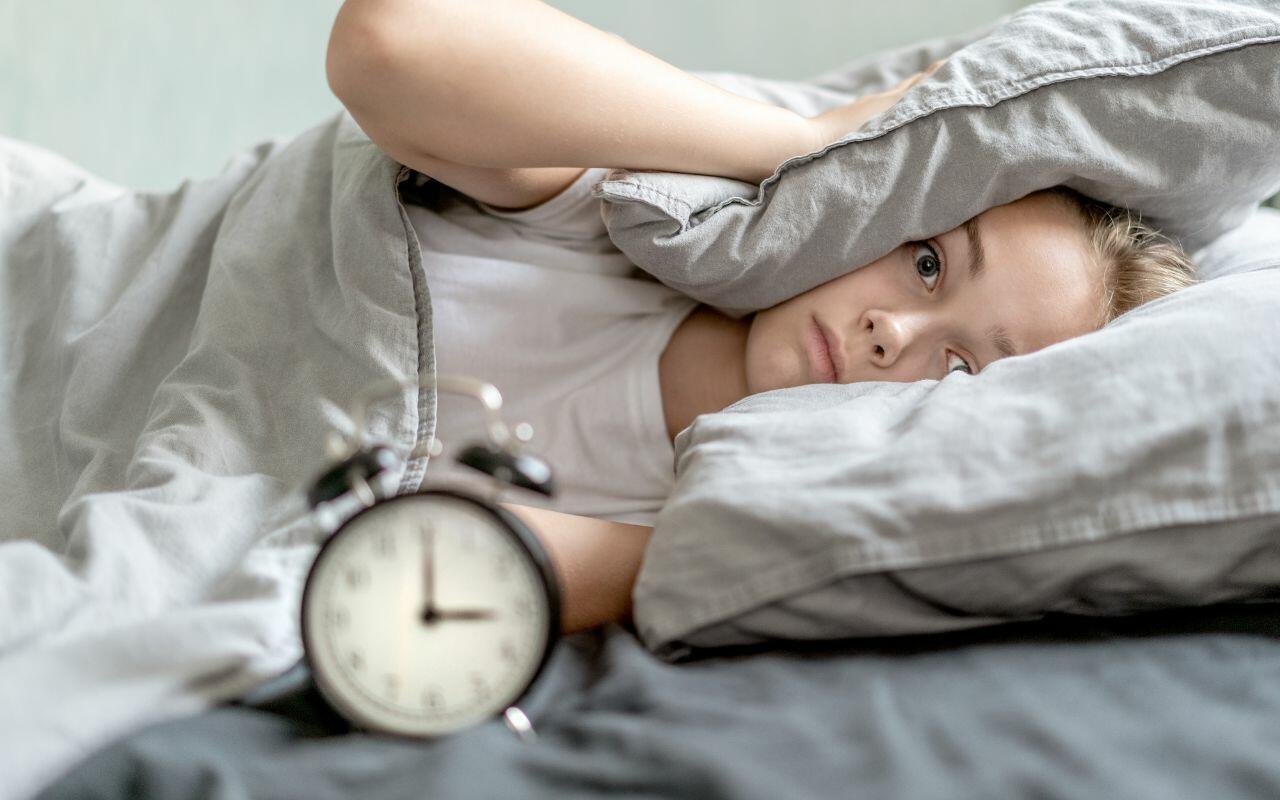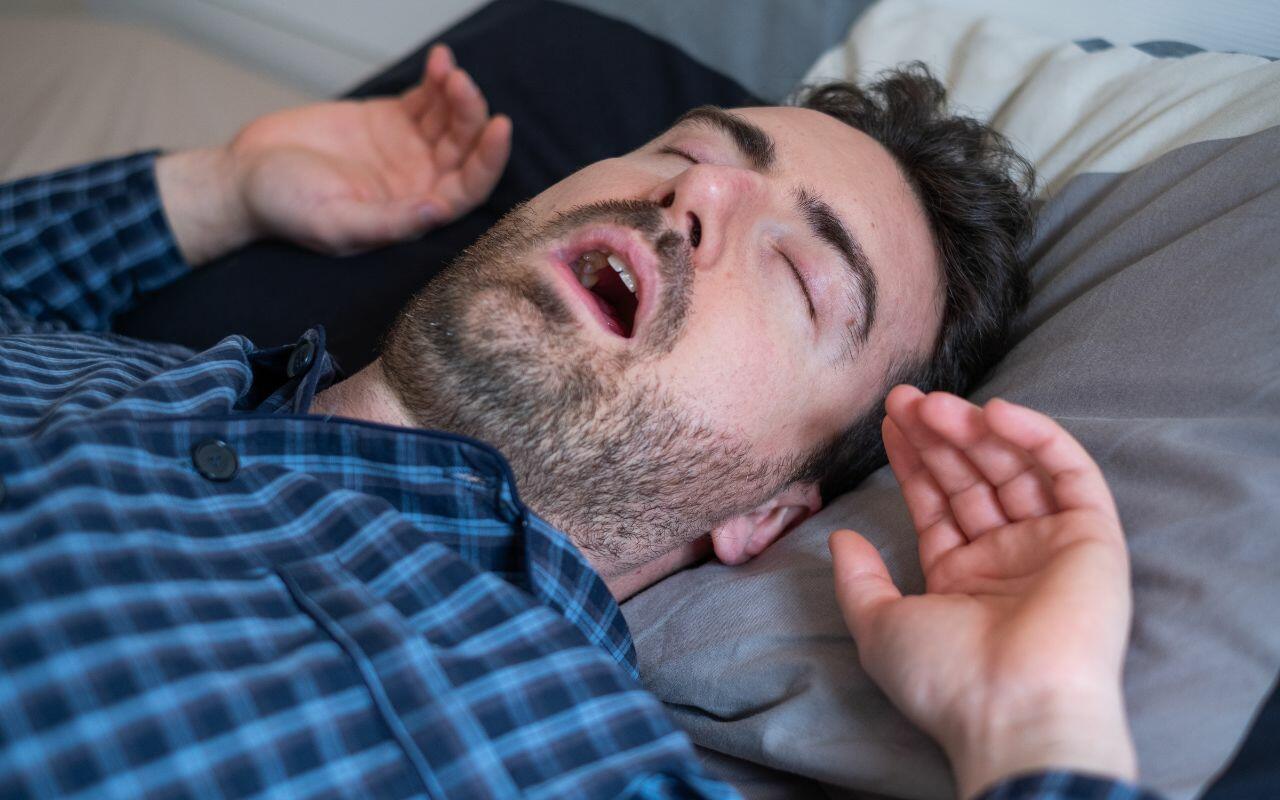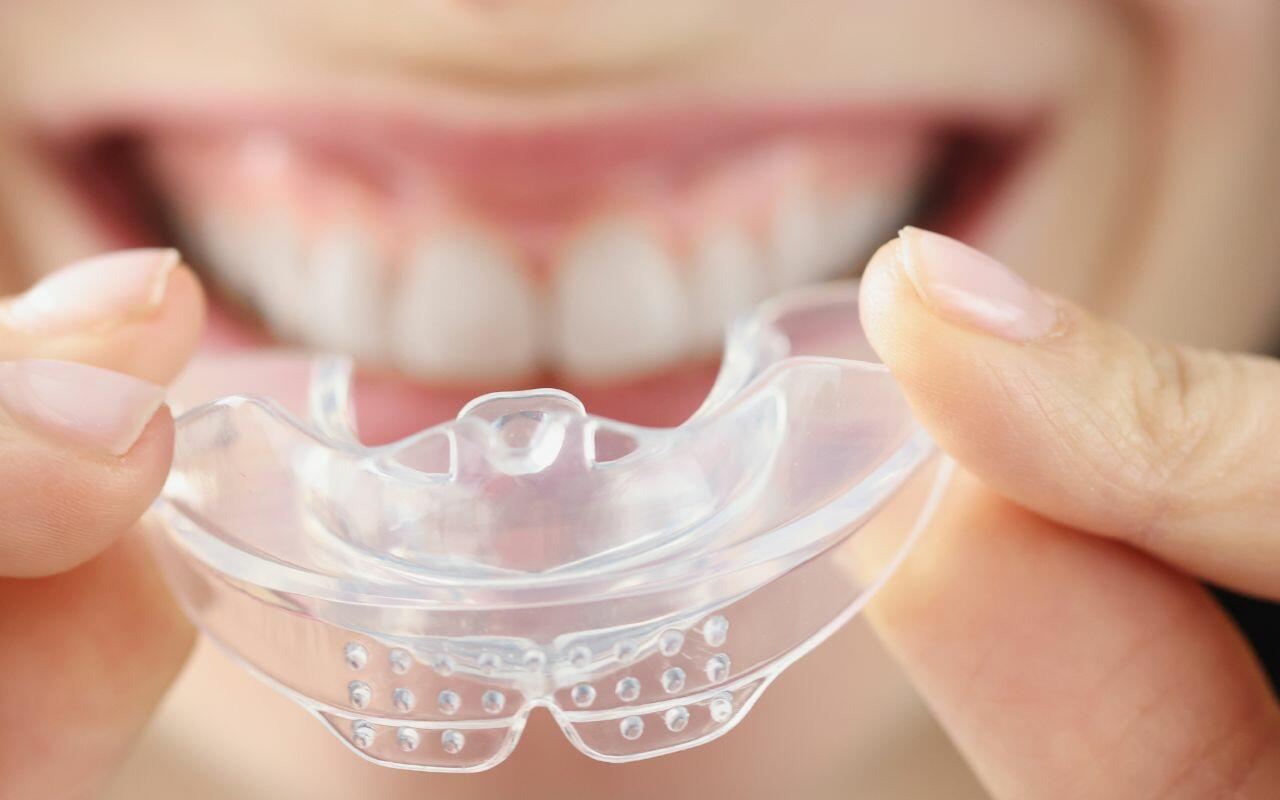You might think you can ignore jaw pain if it only happens in the morning. However, morning jaw pain could be a sign of something more serious. Lasting jaw pain, whether it is in the morning or throughout the day or night, is not normal and could indicate you suffer from temporomandibular joint disorder (TMJ), bruxism, or sleep apnea.
Although jaw pain can also be caused by other issues such as arthritis, dental issues such as impacted wisdom teeth, or a past head injury… TMJ, bruxism, and sleep apnea are the most common causes of morning jaw pain. Here we explain more about these issues and why it’s important not to ignore morning jaw pain.
What Is TMJ?

TMJ disorders are very painful and result from a number of possible issues, including:
- Jaw dislocation
- Tooth and jaw misalignment
- Teeth grinding (bruxism)
Symptoms include:
- Jaw pain
- Pain when opening your mouth
- Pain in your neck, or around or inside your ear
- Trouble chewing
- Facial pain
- A clicking sound in your jaw
- Locking jaw
- Chronic headaches
- Neck and shoulder tension or pain
All these symptoms should be reported to your dentist. They can perform an exam to determine if you suffer from TMJ, identify the cause, and recommend treatment.
What Is Bruxism And Why Does It Cause Jaw Pain?

Bruxism is basically tooth grinding. Many people grind, gnash, or clench their teeth at night. This can also occur for some people when they are awake, especially when they are under stress. It is a sleep disorder and can be related to other sleep disorders including snoring or sleep apnea. For mild bruxism, you might not require treatment. But any grinding and clenching, even when mild, can lead to jaw pain as well as excessive wear and tear on your teeth. More extreme, severe grinding and clenching can actually lead to serious damage such as cracks and chips, as well as other issues including TMJ and chronic headaches.
Symptoms of bruxism include:
- Waking up your partner due to the sound of grinding
- Damaged, loose, or flattened teeth
- Tooth enamel wear
- Tooth pain or sensitivity
- A tired feeling in the jaw muscles
- Locked jaw
- Jaw pain
- Neck or face pain
- Earache
- Temple headaches
- Raw cheek interior
- Sleep disruption
As you can see, these symptoms are very similar to TMJ.
What Is Sleep Apnea?

Sleep apnea is a far more serious sleep disorder that causes you to stop breathing and start again many times throughout the night. The most common form is obstructive sleep apnea, which is caused by the muscles in the throat relaxing. However, central sleep apnea is related to your brain’s signals that help control the muscles when you breathe. Some people suffer from a combination of both. Sleep apnea can be very serious as it puts strain on the heart every time you stop and then suddenly restart breathing. Symptoms include:
- Loud snoring
- Your partner noticing you stop breathing or gasp for air when sleeping
- Dry mouth in the morning
- Headache and/or jaw pain in the morning
- Insomnia and sleep disruption
- Daytime sleepiness
- Loss of attention
- Irritability
If your partner mentions these symptoms at night, or you find you wake up gasping, you should speak to your doctor right away.
Why You Shouldn’t Ignore Morning Jaw Pain

Because jaw pain can be related to these three common issues, you want to identify the cause as soon as possible. Each one interferes with your health, causes pain, and in the case of sleep apnea can be life-threatening if not treated. Even TMJ can worsen to the point where you suffer from serious side effects that impact how you breathe, eat, swallow, and control your facial muscles.
Because all these issues cause jaw pain in the morning, you should discuss all the related symptoms with your dentist. They can help diagnose the issue, including suspicions of sleep apnea. They can recommend the best course of action to help prevent progression and serious side effects.
What Treatments Are Available?

Your treatment will depend on the cause of your morning jaw pain, including:
TMJ
TMJ is treated based on the root cause. This can include sleep apnea and bruxism, or be related to dental issues or injuries to the head or jaw. Your dentist will create a customized treatment plan that might include treatment for other issues such as sleep apnea. Generally speaking, TMJ treatment would include:
- Anti-inflammatory medication as required
- Nightguard
- Oral splint
- Bite alignment treatments
- Orthodontic treatments
You will also be provided with tips to reduce jaw pain, such as:
- Not biting your nails
- Avoiding certain types of food
- Proper tongue position
- Not chewing hard things such as ice
- Not using your teeth to open packages
In more severe cases, surgical interventions might be required.
Bruxism
Common treatments for bruxism typically include:
- Splints
- Night guards
- Dental correction
- Tooth sensitivity treatment
- Reshape teeth chewing surfaces
If severe damage occurs to your teeth because of your bruxism, your dentist might have to repair teeth with crowns. As well, stress management tips can also help reduce clenching and grinding.
Sleep Apnea
Sleep apnea is a more serious condition. As a result, your dentist will determine the type of sleep apnea before recommending treatment. Dentists can provide treatment for obstructive sleep apnea. Treatments available include:
- Continuous positive airway pressure (CPAP) therapy that requires special equipment used during sleep
- Dental appliances
- Tongue-retaining devices
Some lifestyle changes can also reduce symptoms of sleep apnea, including:
- Weight loss
- Reduction in the use of alcohol and tobacco
- Not using sedatives
Your dentist will refer you to your doctor if they find the cause is not resolvable by dental appliances.
As you can see, there are some serious and potentially damaging causes of morning jaw pain. Speaking to your dentist about your symptoms will ensure you receive proper treatment or referral to your doctor should the cause be related to serious sleep apnea.
If you are experiencing morning jaw pain, call us today at 905-775-5307 or click here to request an appointment.
